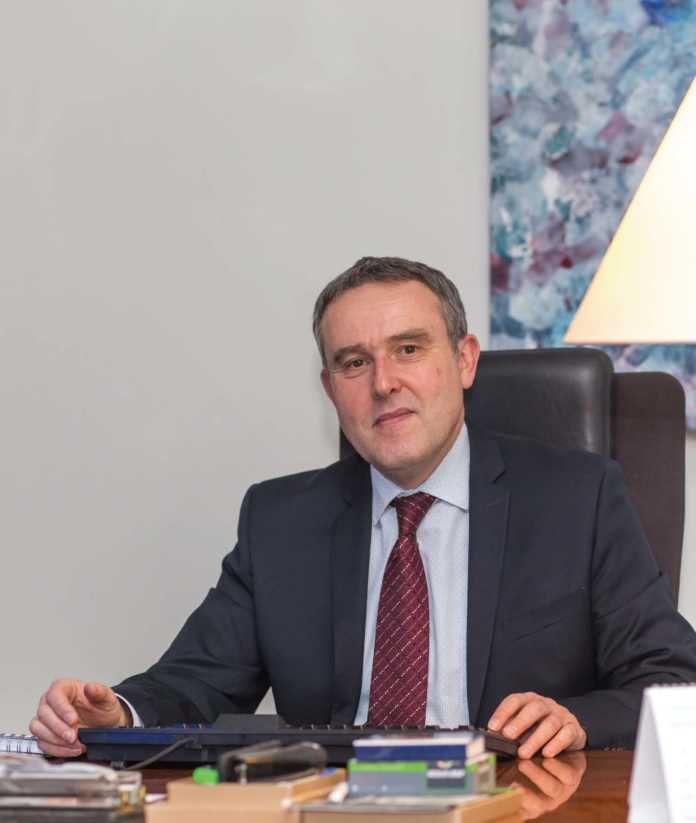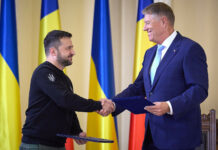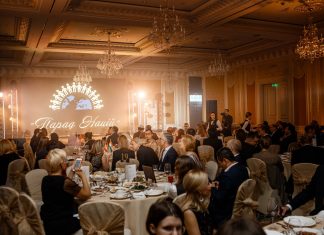Belgium is a reliable and trusted ally of our country in the international arena. But how and in which directions is Ukrainian-Belgian cooperation going on? What do the residents of Belgium know about Ukraine? Ambassador of Belgium, His Excellency Luc Jacobs is talking about cooperation between Kyiv and Brussels in an exclusive interview for FD.
The connections between Ukraine and Belgium have a long history. Before Ukrainian independence, in the very beginning of the 20th century Belgian business invested massively in Ukraine. What was the start of the Ukrainian-Belgian cooperation after 1991?
— I would like to agree with you because the relations between nowadays Ukraine and nowadays Belgium began much earlier than when Ukraine became a truly independent state. We should also bear in mind that Belgian independence is relatively recent too. We had been a part of other empires for centuries before we got independence in 1830 – but this does not mean that there were no political, trade and cultural interconnections before. The early nineties, I think, were a very important period of time for the whole of the European continent. We witnessed the breaking down of the Berlin Wall and of the Iron Curtain. And not only Ukraine became free. They were momentous developments for the EU and for the individual EU member states to respond to. As far as Belgium is concerned, the formal recognition of Ukraine’s independence happened in December 1991 and diplomatic relations were established on the 10th of March 1992. So last year we celebrated the jubilee year of 25 years of diplomatic relations with a concert and reception on the 10th of March 2017, followed by several other events and publications devoted to it throughout the year.
Since the establishment of diplomatic relations, which directions in our bilateral relations can be regarded as the priorities? Why?
— When we are talking about bilateral relations we could sort of schematically distinguish between political, economic and cultural relations as well as people-to-people contacts. And if to follow this scheme, I must say that Ukraine is one of the biggest countries in the European continent, occupying a very strategic place and it is normal and it is logic that we pay a lot of attention to our political bilateral relations with Ukraine. Our bilateral dialogue fi ts well in the framework of the EU-Ukraine cooperation and also in the framework of the Euro-Atlantic cooperation. We take much interest in what is happening in Ukraine now and we have regular political contacts at ministerial or parliamentary level with your country. Also, we exchange views with Ukraine about what is happening in the rest of the world. In the economic sphere, I am very happy to see that many flagship companies of Belgium are present in Ukraine and were present from the very beginning since Ukrainian independence. Belgian business saw the potential of the transition of the state-led economy into a market economy and the assets and opportunities that the Ukrainian economy had to offer attracted important internationally oriented Belgian companies. I would say that this economic cooperation in terms of trade and investments can be regarded as one of the driving forces in our relations.

Can we say that Belgian investment into the Ukrainian economy has reached the level that used to be before 1917?
— You refer indeed to the huge capital investments that took place in the late 19th and in the beginning of the 20th centuries, which were part of a European wave of investments, in which Belgium played a leading role. You know, these two epochs are difficult to compare. But you are not the first one to ask me this question. Also, your question may sound like the following one – is Ukraine still the same attractive place for investment as it was then? And my answer is that intrinsically the business appeal of Ukraine remains the same. You have absolutely fantastic assets in the agriculture sector and your industrial base is very strong. You produce a lot of things – from hairpins to rockets, so to speak. Also, Ukraine shows itself as a very active and creative player in the IT-sector. So there are a lot of points of attraction for us in Ukraine and it makes Ukraine a very promising business partner. At the same time, the business climate in Ukraine is not yet up to the opportunities that Ukraine has in stock, but I am optimist by nature. I must say that the Ukrainian authorities do lend a listening ear to the needs of the investors, foreign and domestic. And also, I must say that I see important reforms that have been put on the rails during the last three years. These reforms are gradually improving the climate in which our companies operate. A lot of promises have been met already, but we expect of course this process to continue and to be made irreversible. In December last year I took part in our yearly Ambassadors’ conference in Brussels that also includes a sort of ‘speed dating’ sessions with business representatives. And I have to say that Ukraine attracts a lot of interest from our business community. So I can say that Ukraine is on the radar of Belgian business, but I also sensed some hesitation that Ukraine needs to address.
Recently, the modern Ukrainian movies that had been filmed after 2014 were demonstrated in Brussels. Is there an interest to Ukrainian culture in your country?
— First of all I should say that, indeed, Ukrainian films are much appreciated in Belgium. Earlier this month, for the third time in a row, a Ukrainian fi lm festival was held in Brussels, in BOZAR, one of the most outstanding cultural temples of our country. So, cinema is an absolutely interesting visiting card for Ukraine. And we have a cinema-loving public in Belgium, especially when it comes to art-house films of European production. Also, Ukrainian cinema has something exotic, in a positive sense, because it is opening up many unknown things for us. And that is why the film industry is a fantastic medium for Ukraine to showcase itself to the world. But I must also say that the interest for Ukrainian culture in Belgium is not limited to cinema. Ukrainian contemporary art is part of the collections of our museums and works by Ukrainian artists are being sold through Belgian art galleries. In the field of music you know the prestigious international Queen Elizabeth Competition for young virtuosi. Many talented Ukrainian musicians took already part and three made it into the final. In 1999 a Ukrainian pianist won the contest. In Belgium we do know Okean Elzy of course, and Ruslana or Ukrainian folk/rock music. Also, Ukrainian fashion becomes better known, which is prompted by the growing international awareness around Vyshyvanka Day.
We know that your Embassy takes an active part in the Days of Francophonie in Ukraine. Would you appreciate to see similar Days of Ukraine being organized in Belgium?
— For sure! But we must realise that such a multidisciplinary festival requires a lot of preparation and important budgets. For the Journées de la Francophonie in Ukraine we can avail of the combined resources of several countries, active members of the Francophonie. That is the first thing. Furthermore, I have always thought that an excellent way for the new Ukraine to promote itself would be the Europalia Festival biennial. Since 1969 this arts festival has invited 25 countries to Belgium, in the heart of Europe. Last year, Indonesia took part in it. I think Ukraine should make an application for one of the next editions of Europalia. Why? Belgium hosts the EU and NATO’s headquarters. More international organisations are located in Brussels than in Washington D.C., along with about 120 international government organisations, about 180 embassies and thousands of diplomats, media people and lobby groups. You won’t find a permanent international presence like this anywhere else in the world. So when you present yourself successfully in Belgium, be sure that everyone will come to know about you. And I wish Ukraine could do that. Your country deserves it!













